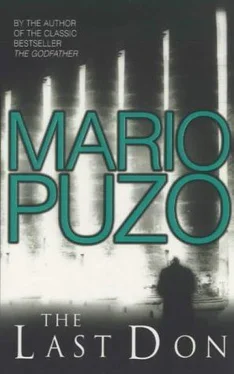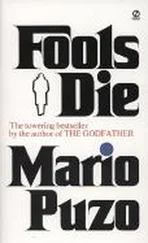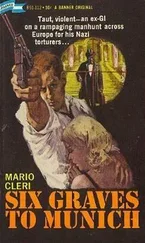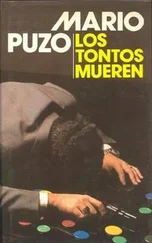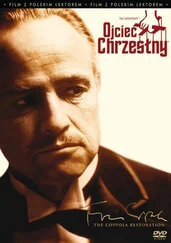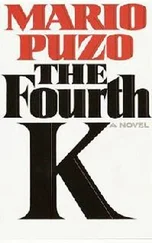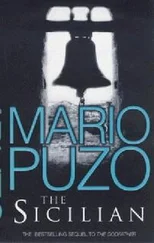«It is done,» the Don said. «Now you can go out and enjoy yourself.»
Gronevelt said, «I'll be getting back to Vegas. I don't think it's wise to let everyone know I'm a guest here.»
The Don nodded. «Petie, have someone drive Mr. Gronevelt to New York.»
Now, besides the Don, only his sons, Pippi De Lena, and Virginio Ballazzo were left in the room. They looked slightly stunned. Only Giorgio had been his confidant. The others had not known the Don's plans.
Ballazzo was young for a Bruglione, only a few years older than Pippi. He had control over unions, garment center transportation, and some drugs. Don Domenico informed him that from now on he was to operate independently of the Clericuzio. He had only to pay a tribute of 10 percent. Otherwise, he had complete control over his operations.
Virginio Ballazzo was overcome by this largesse. He was usually an ebullient man who expressed his thanks or complaints with brio, but now he was too overcome with gratitude to do anything but embrace the Don.
«Of that ten percent, five will be reserved by me for your old age or misfortune,» the Don told Ballazzo. «Now forgive me, but people change, they have faulty memories, gratitude for past generosities fades. Let me remind you to be accurate in your accountings.» He paused for a moment. «After all, I am not the tax people, I cannot charge you those terrible interests and penalties.»
Ballazzo understood. With Don Domenico, punishment was always swift and sure. There was not even a warning. And the punishment was always death. After all, how else could one deal with an enemy?
Don Clericuzio dismissed Ballazzo, but when the Don escorted Pippi to the door, he paused for a moment, then pulled Pippi close to him and whispered in his ear, «Remember, you and I have a secret. You must keep it a secret forever. I never gave you the order.»
On the lawn outside the mansion, Rose Marie Clericuzio waited to speak to Pippi De Lena. She was a very young and very pretty widow, but black did not suit her. Mourning for her husband and brother suppressed the natural vivacity so necessary to her particular kind of looks. Her large brown eyes were too dark, her olive skin too sallow. Only her newly baptized blue-ribboned son, Dante, resting in her arms, gave her a splash of color. All through this day she had maintained a curious distance from her father, Don Clericuzio, and her three brothers, Giorgio, Vincent, and Petie. But now she was waiting to confront Pippi De Lena.
They were cousins, Pippi ten years older, and when she was a teenager, she had been madly in love with him. But Pippi was always paternal, always off-putting. Though a man famous for his weakness of the flesh, he had been too prudent to indulge that weakness with the daughter of his Don.
«Hello Pippi,» she said. «Congratulations.»
Pippi smiled with a charm that made his brutal looks attractive. He bent down to kiss the infant's forehead, noticing with surprise that the hair, which still held the faint smell of incense from the church, was thick for a child so young.
«Dante Clericuzio, a beautiful name,» he said.
It was not so innocent a compliment. Rose Marie had taken back her maiden name for herself and her fatherless child. The Don had convinced her to do this with an impeccable logic, but still she felt a certain guilt.
Out of this guilt, Rose Marie said, «How did you convince your Protestant wife to have a Catholic ceremony and such a religious name?»
Pippi smiled at her. «My wife loves me and wants to please me.»
And it was true, Rose Marie thought. Pippi's wife loved him because she did not know him. Not as she herself had known him and once loved him. «You named your son Croccifixio,» Rose Marie said. «You could have pleased her at least with an American name.»
«I named him after your grandfather, to please your father,» Pippi said.
«As we all must,» Rose Marie said. But her bitterness was masked by her smile, her bones structured in such a way that a smile appeared naturally on her face and gave her an air of sweetness that took the sting out of anything she said. She paused now, faltering. «Thank you for saving my life.»
Pippi stared at her blankly for a moment, surprised, slightly apprehensive. Then he said softly, «You were never in any danger,» and he put his arm around her shoulder. «Believe me,» he said. «Don't think about these things. Forget everything. We have happy lives ahead of us. Just forget the past.»
Rose Marie dipped her head to kiss her infant but really to hide her face from Pippi. «I understand everything,» she said, knowing that he would repeat the conversation to her father and her brothers. «I have made peace with it.» She wanted her family to know that she loved them still and that she was content her infant had been received into the Family, sanctified now by Holy Water, and saved from everlasting Hell.
At that moment Virginio Ballazzo gathered Rose Marie and Pippi up and swept them to the center of the lawn. Don Domenico Clericuzio emerged from the mansion, followed by his three sons.
Men in formal dress, women in gowns, infants in satin, the Clericuzio Family formed a half circle for the photographer. The crowd of guests clapped and shouted congratulations, and the moment was frozen: the moment of peace, of victory, and of love.
Later the picture was enlarged and framed and hung in the Don's study room, next to the last portrait of his son Silvio, killed in the war against the Santadio.
The Don watched the rest of the party festivities from the balcony of his bedroom.
Rose Marie wheeled her baby carriage past the bowlers, and Pippi's wife, Nalene, slim, tall, and elegant, came along the lawn carrying her infant, Croccifixio, in her arms. She put the child in the same carriage with Dante, and the two women gazed down lovingly.
The Don felt a surge of joy that these two infants would grow up sheltered and safe and would never know the price that had been paid for their happy destiny.
Then the Don saw Petie slip a baby bottle of milk into the carriage and everyone laughed as the two babies fought for it. Rose Marie raised her son Dante from the carriage, and the Don remembered her as she was just a few short years before. The Don sighed. There is nothing so beautiful as a woman in love, nor so heartbreaking as when she is made a widow, he thought with regret.
Rose Marie was the child he had most loved, she had been so radiant, so full of cheer. But Rose Marie had changed. The loss of her brother and her husband was too great. Yet, in the Don's experience, true lovers would always love again and widows grew tired of black weeds. And now she had an infant to cherish.
The Don looked back on his life and marveled it had come to such glorious fruition. Certainly he had made monstrous decisions to achieve power and wealth, but he felt little regret. And it all had been necessary and proved correct. Let other men groan over their sins, Don Clericuzio accepted them and placed his faith in the God he knew would forgive him.
Now Pippi was playing boccie with three soldiers from the Bronx Enclave, men older than him, who had solid business shops in the Enclave, but who were in awe of Pippi. Pippi with his usual high spirits and skill was still the center of attention. He was a legend, he had played boccie against the Santadio.
Pippi was exuberant, shouting with joy when his ball jostled the opposing ball away from the target bowl. What a man Pippi was, the Don thought. A faithful soldier, a warm companion. Strong and quick, cunning and withholding.
His dear friend Virginio Ballazzo had appeared on the boccie court, the only man who could rival Pippi's skill. Ballazzo gave a great flourish as he let his ball go, and there was a loud cheer as he made the successful hit. He raised his hand to the balcony in triumph, and the Don clapped. He felt a sense of pride that such men flowered and prospered under his rule, as had all the people who had gathered together on this Palm Sunday in Quogue. And that his foresight would protect them in the difficult years to come.
Читать дальше
